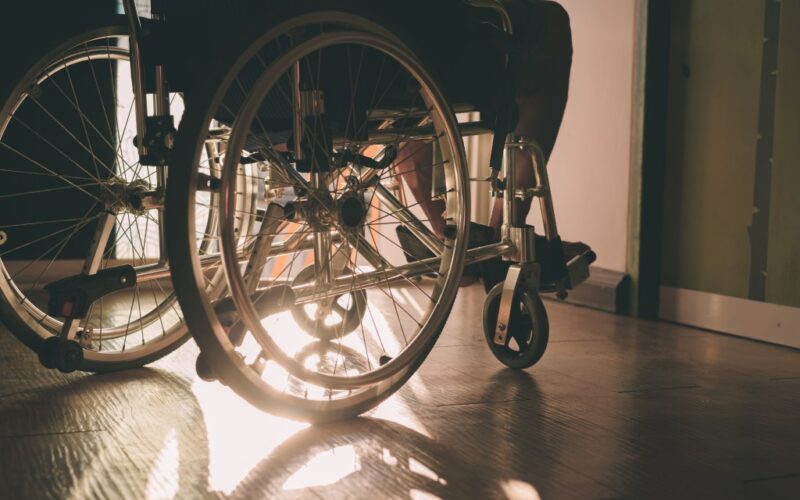Physician-assisted suicide advocates say that if there were any problems in other states with letting doctors help patients kill themselves, “we would have seen them already and we haven’t.”
If that’s true, it’s only because they’re so blinded by suicide ideology they won’t hear facts that would expose their “safeguards” narrative as a fraud.
As Alexander Raikin, who has reported extensively on assisted suicide programs in other states, Canada and Europe, wrote: “This systematic disregard of safeguards is happening as the process is being fast-tracked.”
Indeed, the New York bill was jammed through the Legislature by remarkably narrow margins that did not go unnoticed in Albany. Twenty-one Assembly Democrats and six Senate Democrats, mostly Black and Latino lawmakers from poorer communities, broke ranks with leadership and voted no. The last public hearing on the suicide bill was in 2018.
“Violations of assisted-suicide laws are rampant in the states with the largest and oldest programs. Yet I have found no suspensions or revocations of clinician licenses, even when patients were endangered,” Raikin, a visiting fellow at the Ethics and Public Policy Center, wrote in Unherd last month. (“How America abandoned its suicide safeguards.”)
Raikin found:
- In 2020, a 29-year-old Colorado woman with eating disorders was “provided with lethal drugs … in the midst of a mental-health crisis,” according to a new lawsuit. The suit says Jane was approved for assisted suicide even though hospice considered her no longer competent to consent to medical treatments.
- After Oregon waived waiting periods in 2020, assisted suicides have routinely occurred within a day or two of the patient’s request. Since it can take up to five days for a patient to die from ingesting the death cocktail, “it is possible that it will take a patient longer to die than to receive lethal prescriptions,” Raikin wrote.
- Oversight is a nightmare. Washington state doctors failed to meet reporting requirements in a third of all assisted suicide deaths. Washington is missing 515 compliance forms for 2009 to 2023, as well as 293 forms patients must sign attesting to their wish to die by suicide. Colorado is missing some 1,800 compliance forms since 2017, he calculated.
- Official reports in Colorado and California found that state authorities have no record of the type of suicide drugs that were prescribed to more than 1,000 patients.
- States can’t answer the most basic question: how many physician-assisted suicides have been facilitated in America? Oregon’s health authority has records on 376 assisted suicides completed in 2024, but for another 178 cases in which medications were prescribed, authorities don’t know if the patient died from the drugs or if they even died at all.
Doctor-aided suicide advocates call these findings “fear mongering” and “scare tactics.” But they are all true and directly apply to the bill before Gov. Hochul.
The New York bill has no waiting period, making same-day suicides entirely possible.
Not only does it fail to require a mental health evaluation, but doctors aren’t even required to ask if the patient has ever contemplated or attempted suicide before, or if they’ve ever been treated for depression, paranoia, dementia, anxiety, anorexia or any other mental health condition.
Doctors would be required to falsify death certificates by listing the underlying illness as the cause of death and not the ingestion of lethal drugs, meaning we’d never know how many people killed themselves this way.
New York pharmacists normally must report to the state any time they dispense controlled substances. But the suicide bill contains no such requirement.
The fact is nobody would know what happens to the suicide drugs once they leave the pharmacy. As Assembly Majority Leader Crystal Peoples-Stokes and Brooklyn Assemblywoman Latrice Walker said in voting no, these lethal drugs could easily end up on the streets in their communities.
Hochul’s signature would give New York the most extreme, permissive and guardrail-free assisted suicide law in the nation. And one that’s a nightmare to regulate, impossible to control and destined to have otherwise well-meaning policy makers wondering what they unleashed.
Let’s hope the governor looks past the advocates’ distorted rhetoric of “compassion” and “autonomy,” grasps the reality of suicide laws, and decides assisted suicide is so rife with co-morbidities that it should be rejected outright.
Bellafiore is a public affairs consultant and former political reporter who has worked for two years to defeat the assisted suicide bill in New York.








